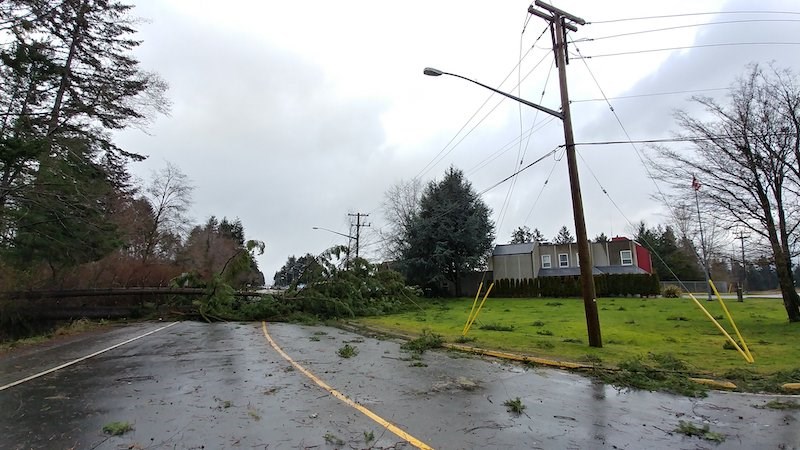BC Hydro warns locals to prepare for more power outages this fall and winter due to drought-weakened trees coupled with stormier La Niña weather conditions.
Due to the record-breaking heat over the summer, BC Hydro meteorologists say the accumulation of "dead and weakened trees could be a risk to electrical infrastructure." Additionally, La Niña is expected to usher in wetter and cooler conditions in B.C. this winter. This weather coupled with the dry trees could result in the ‘perfect storm’ for outages."
Meteorologists outline these concerns in a report titled "The perfect storm: How summer drought could mean severe fall storm fallout." Historically, the power authority had its two most damaging storms following a drought in the summer of 2015 as well as a drought followed by "unseasonably heavy rainfall in 2018."
"The 2015 summer storm caused over 710,000 outages and lasted multiple days," explains a news release. "Summer 2021 was the hottest summer on record in most parts of B.C and resulted in severe drought — weakening tree roots, wood and soil and leaving them more susceptible to failure."
BC Hydro states that the dry conditions following the summer are similar to those following the 2015 drought. From April to July, Abbotsford, Vancouver and Comox had some of the driest conditions, "with Abbotsford experiencing the lowest rainfall recorded in the Fraser Valley in more than 60 years."
The power authority says it's increasing its vegetation management program to combat weather-related challenges. Since B.C. has some of the highest densities of trees per kilometre of power line compared with most jurisdictions in North America, it's conducting regular inspections of the vegetation.
"Trees and adverse weather are the single-biggest cause of power outages in B.C., and vegetation that grows too close to or into BC Hydro’s transmission or distribution lines poses a safety hazard as it can conduct electricity."
BC Hydro is advising customers to prepare for what could be a challenging storm season. It's important for customers to be prepared by having a well-stocked emergency kit that includes:
- flashlight
- extra batteries
- first-aid kit
- non-perishable food
- water
BC Hydro is also reminding the public that if they come across a downed or damaged power line, assume the line is live, stay back at least 10 metres (the length of a city bus), and call 911 to report.
For more information on outages and safety, visit BC Hydro's website.



